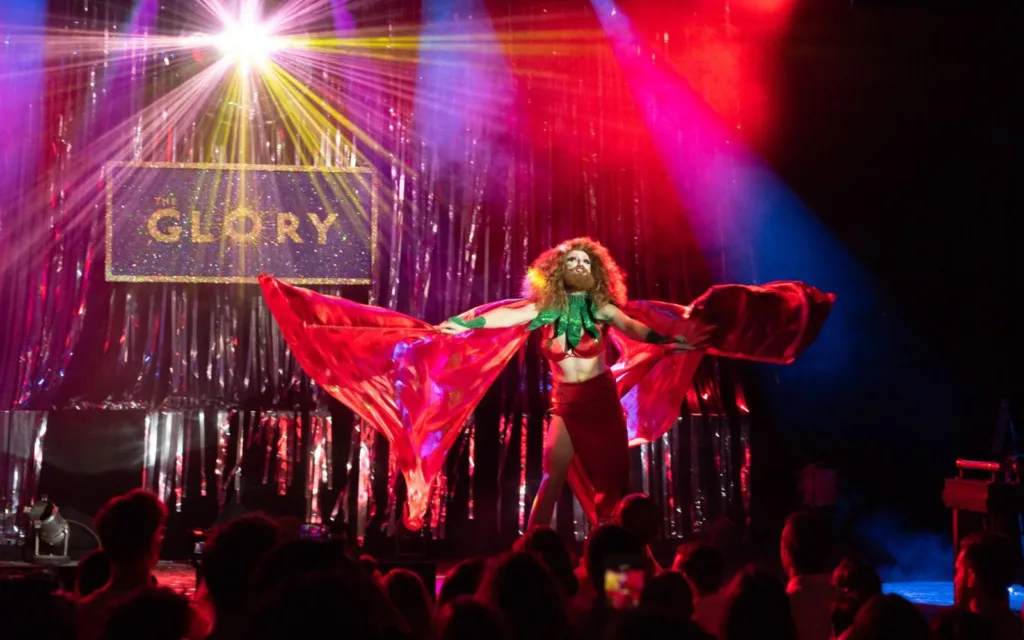Between 2006 and 2024, London witnessed a dramatic decline in its LGBTQ+ venues, with more than half shutting their doors. The Greater London Authority data revealed a significant drop from 125 venues to just 50. This trend is part of a broader challenge facing nightlife in the capital, exacerbated by economic pressures and the impacts of the COVID-19 pandemic.
Economic Pressures and Rising Costs
The closures of LGBTQ+ venues can be attributed to several interconnected factors. The cost-of-living crisis and rising rents have made it increasingly difficult for venue operators to sustain their businesses. Hospitality, particularly nightlife, has faced unprecedented challenges, including higher expenses for goods due to Brexit and reduced disposable income among young people, who are spending more on rent and less on leisure activities.
The Impact of the Pandemic
The COVID-19 pandemic severely impacted London’s nightlife, with the Night Time Industries Association reporting that nearly a quarter of all nightclubs in the city closed during this period. The number of nightclubs fell by 22% from 256 in 2019 to 198 in 2022. The pandemic not only disrupted business operations but also changed consumer behaviours and increased financial uncertainties.
Efforts to Stem the Decline
Despite these challenges, there have been concerted efforts to support and protect LGBTQ+ venues. Amy Lamé, London’s Night Czar, highlighted the importance of nightlife to the city’s economic and social recovery. Initiatives like the London Plan, the LGBTQI+ Venues Forum, and the Culture and Community Spaces at Risk Office have been instrumental in these efforts.
“I’m proud that we have been able to stem this decline by protecting venues through the London Plan, and supporting operators through the LGBTQI+ Venues Forum and our Culture and Community Spaces at Risk Office,” Lamé said.
The Closure and Rebirth of Iconic Venues
The narrative of London’s LGBTQ+ venues is not solely one of decline but also of resilience and rebirth. The Glory in Haggerston, a well-known venue, closed in January 2023 due to the impracticality of operating amidst nearby developers’ construction work. Co-owner John Sizzle explained that the plans, which included using portable toilets and reducing venue capacity, made continuing business unviable. Sizzle also pointed to broader challenges such as the cost-of-living crisis and reduced spending power among young people.

However, the closure of The Glory led to the opening of a new venue, The Divine, in Dalston. Sizzle expressed his excitement about the new venture, emphasizing the importance of such spaces for cultural evolution and personal expression within the LGBTQ+ community.
“These are safe spaces where people can express themselves, discover their own gender, sexuality, develop their performance art… that’s why they exist,” he said.
The Long Battle for The Black Cap
The Black Cap in Camden, another iconic LGBTQ+ venue, has faced a long battle to reopen since its closure in 2015. The pub, which has been a part of Camden High Street for over 250 years, was known for its vibrant drag performances and historical significance to the LGBTQ+ community. Campaigners have gathered outside the pub every Saturday since it closed, emphasizing its cultural importance and advocating for its reopening.
Despite being designated as an Asset of Community Value, preventing any change in its use without planning permission, The Black Cap remains shut. However, there is hope on the horizon. Plans to reopen the venue have been submitted, and the consultation period is underway.
Activist Alex Green highlighted the broader issue of venue closures across London, noting that the loss of venues is often due to development and overseas investment rather than discrimination.
“Most of those venues close, not just the LGBT venues, all venues, all those loss of pubs – the majority of those have closed historically because of development, because of overseas investment, because of the ease of that,” Green explained.
A Future for London’s LGBTQ+ Nightlife
The ongoing efforts to protect and revive LGBTQ+ venues in London reflect a broader commitment to preserving the city’s diverse cultural heritage. Night Czar Amy Lamé’s work with venues like The Glory and The Black Cap demonstrates a proactive approach to ensuring these spaces can continue to serve their communities.
As the city navigates its economic recovery post-pandemic, the resilience and adaptability of London’s LGBTQ+ nightlife offer a hopeful outlook. The story of venues like The Divine and the potential reopening of The Black Cap illustrate the community’s determination to maintain and celebrate its cultural spaces, despite the challenges they face.
While the past decade and a half has seen a significant decline in the number of LGBTQ+ venues in London, the efforts to support and revive these spaces are a testament to their importance. As London looks to the future, the preservation and growth of its LGBTQ+ nightlife will continue to be a vital part of its cultural and social fabric.en’s party to join Zemmour — didn’t endorse a possible alliance with Le Pen, in case she wins the second round.